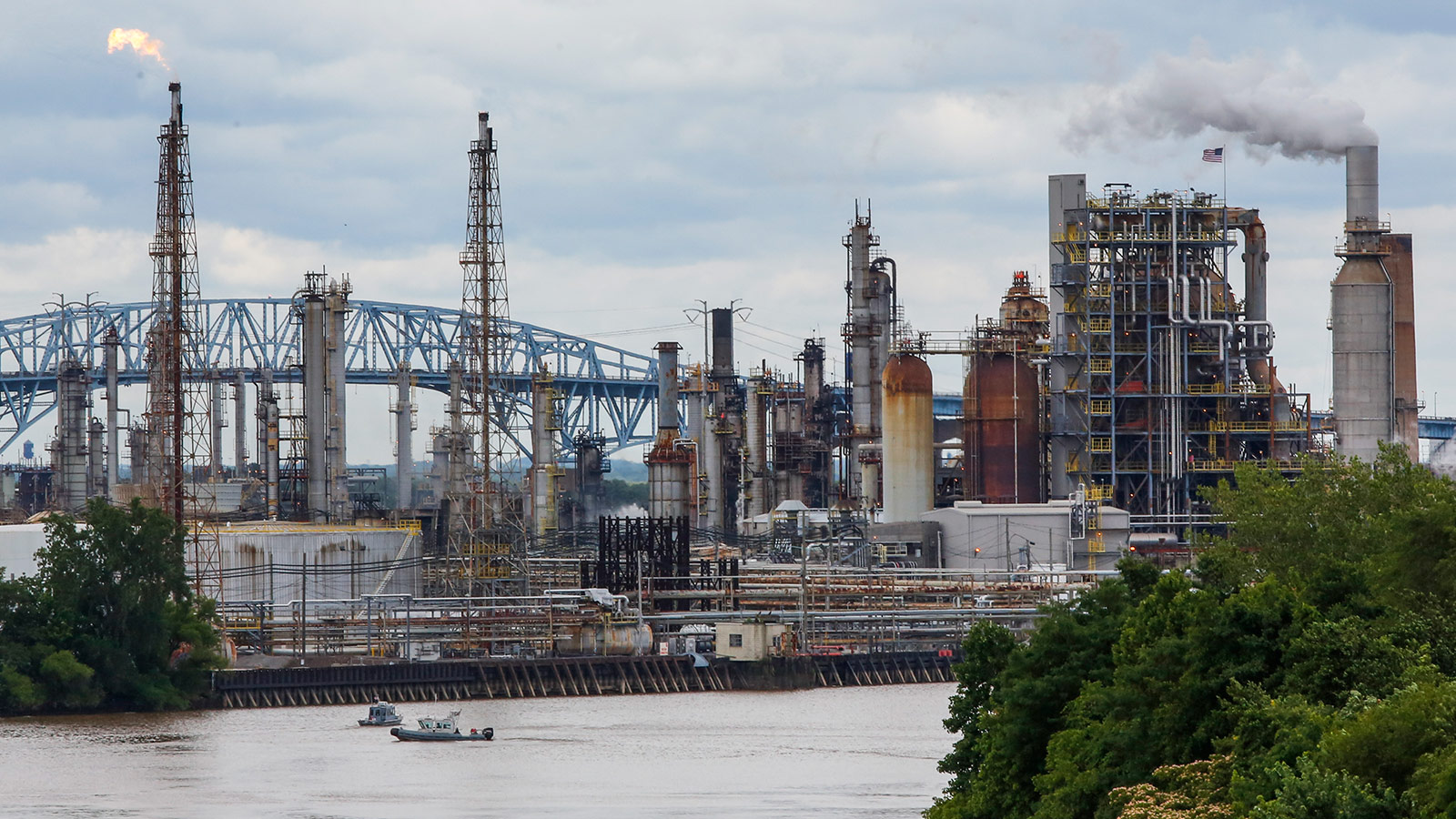In the wake of last week’s intense fire and loud series of explosions, Philadelphia Energy Solutions, one of the largest and oldest oil refineries in the country, is finally shutting its doors. The blasts jolted nearby residents and sparked new concerns about the plant’s impact on public health.
The 150-year-old oil complex has a history of dangerous industrial incidents including accidental fires and hazardous gas leaks. In the past, South Philadelphia residents have drawn connections between the neighborhoods high cancer and asthma incidence and their proximity to the refinery. The plant, which processes 335,000 barrels of crude oil each day, is the largest source of air pollution in the city and has been in violation of both the Clean Air and Water Acts.
The refinery has also a long and gruesome financial track record. And according to a newly surfaced report, the private company appears to have been aided by none other than former Environmental Protection Agency chief, Scott Pruitt.
Based on internal department documents, Pruitt and other executives at the EPA had three previously unreported meetings with PES officials, the first of which occurred shortly before the company filed for Chapter 11 bankruptcy in January 2018. The purpose of the meetings was to reorganize the refinery’s more than $100 million in debt. Two months later the agency granted ultimately the company temporary financial relief. PES emerged from bankruptcy in August 2018.
In a statement on Wednesday, CEO Mark Smith announced the refinery will permanently shut down while preparing the complex site “for a sale and restart” under new ownership. According to the Philadelphia Inquirer, the company’s decision may have been strongly influenced by the high cost of repairs needed after last week’s blast, the exact cause of which remains under investigation. The move will put around 1,000 people out of jobs in the next several months; approximately 100 non-union employees will soon be laid off, while 700 union employees are expected to leave in mid-July, according to Reuters. On Wednesday, employees were reportedly seen leaving the site lugging boxes with personal belongings.
The news has already led to an increase in the price of wholesale gasoline.
Some residents see the plant’s closure as an overall public health win but say the company still needs to pay for any refinery-produced toxins left in the community. “You close [the refinery] down, but who’s going to clean up the mess that you’ve already created?” said Carol White, a member of the grassroots group Philly Thrive, which has been fighting the PES refinery for several years based on community health concerns.
And even assuming the refinery does shut down, the neighborhood would still face health burdens. The Philadelphia City Council recently approved the construction of a $60 million liquidated natural gas plant across from the refinery complex. The project is expected to bring up to $4 million per year in revenue for the city-owned Philadelphia Gas Works. Philly Thrive is now asking Philadelphia Mayor Jim Kenney to block construction of the new gas plant as well as demand the 1,300 acres of land owned by PES be restored to the public.
“Philadelphians no longer breathing PES’s toxic air is a big first step, but it’s not the end,” Philly Thrive member Sylvia Bennett said in a statement. “We have to stay focused and make sure it actually happens.”


